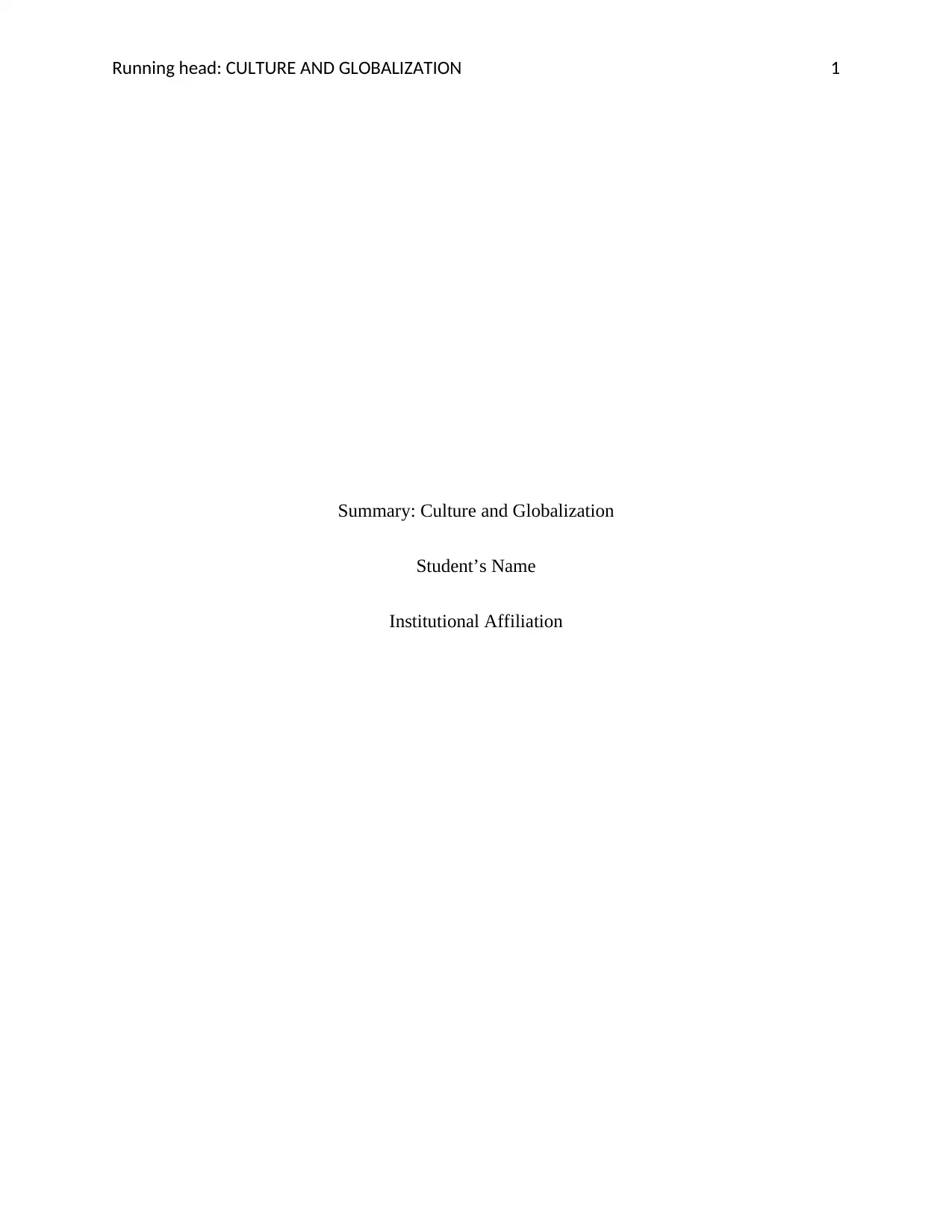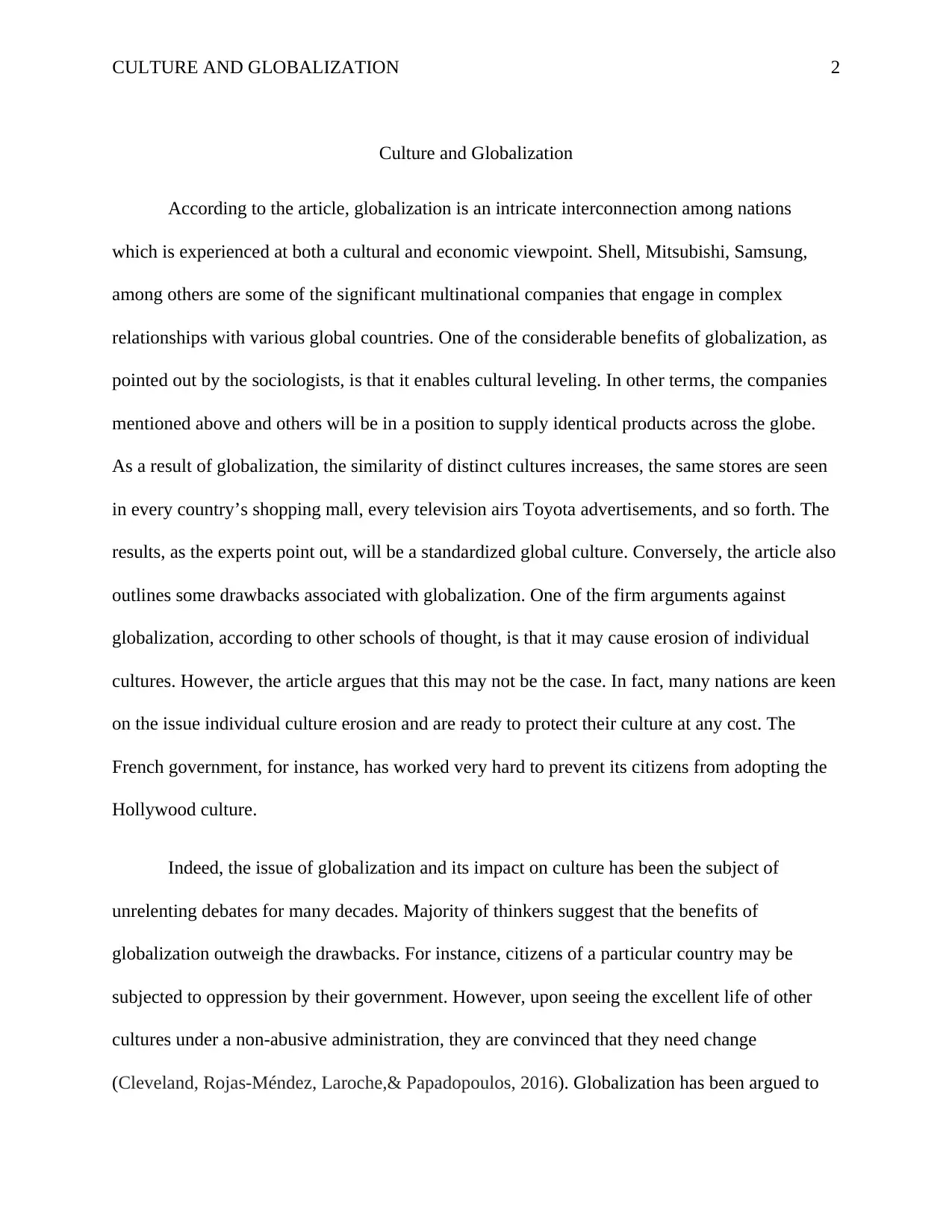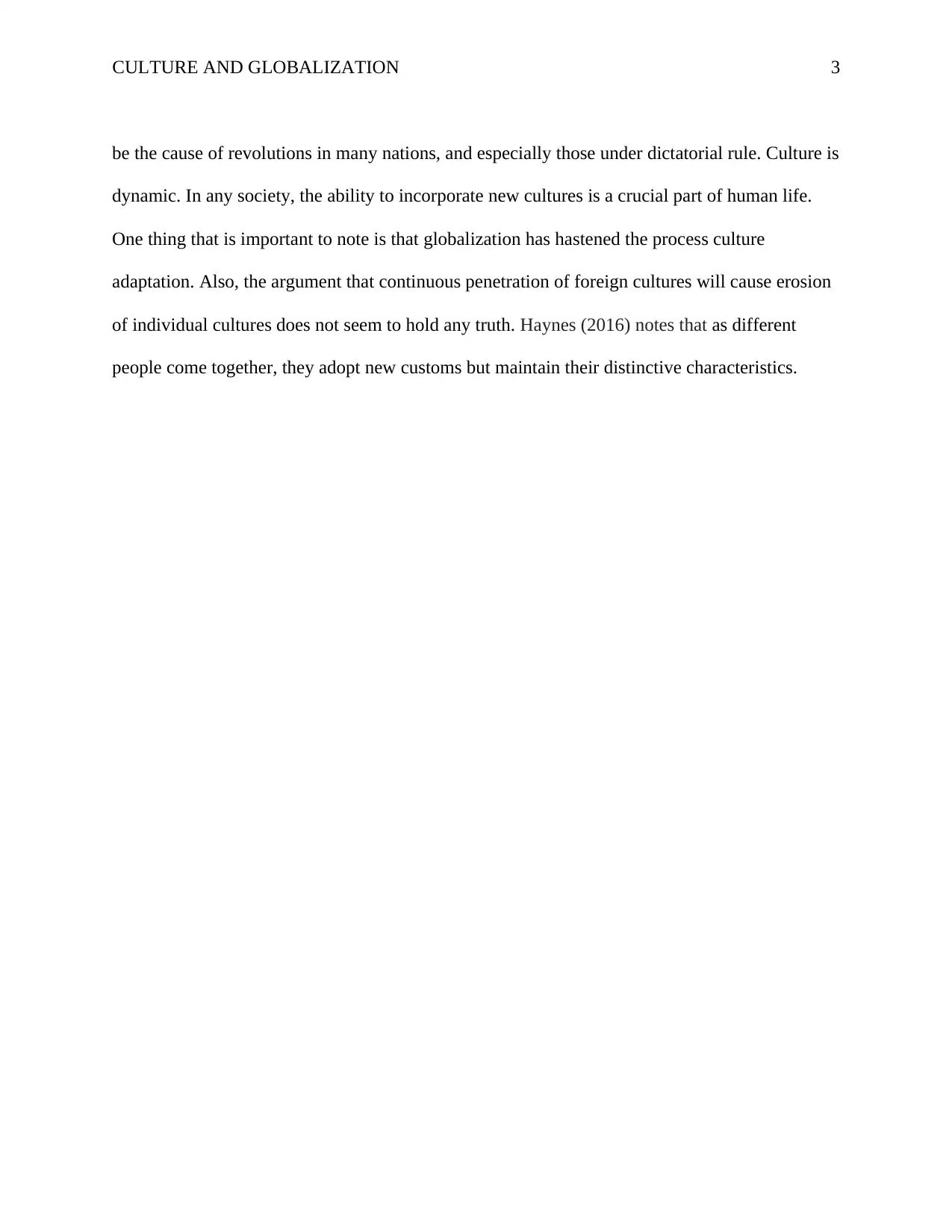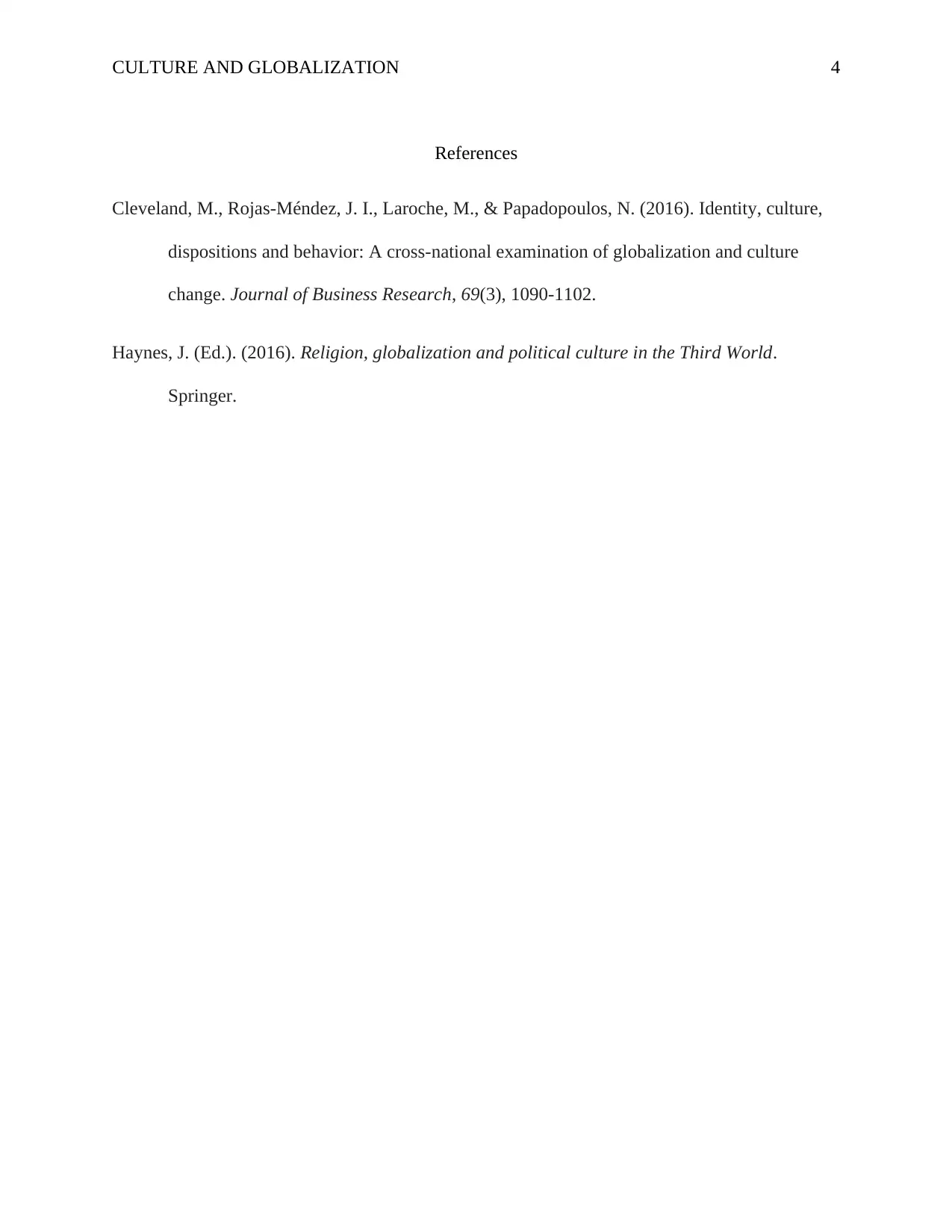Globalization's Influence on Cultural Dynamics and Preservation
VerifiedAdded on 2020/05/16
|4
|534
|148
Essay
AI Summary
The essay 'Culture and Globalization' examines the intricate connections globalization creates among nations from both cultural and economic perspectives. It highlights how major multinational corporations like Shell, Mitsubishi, and Samsung engage with various countries, leading to cultural leveling where identical products are globally available, resulting in a standardized global culture. Despite this, the essay discusses concerns about cultural erosion but argues that many nations actively protect their unique cultures. The French government's efforts to preserve its identity against Hollywood culture exemplify such protective measures. Furthermore, the essay debates globalization's role in inspiring societal change and revolution under oppressive regimes by exposing citizens to alternative lifestyles. It posits that while globalization accelerates cultural adaptation, it does not necessarily lead to cultural erosion as people integrate new customs while maintaining their distinct identities.
1 out of 4








![[object Object]](/_next/static/media/star-bottom.7253800d.svg)